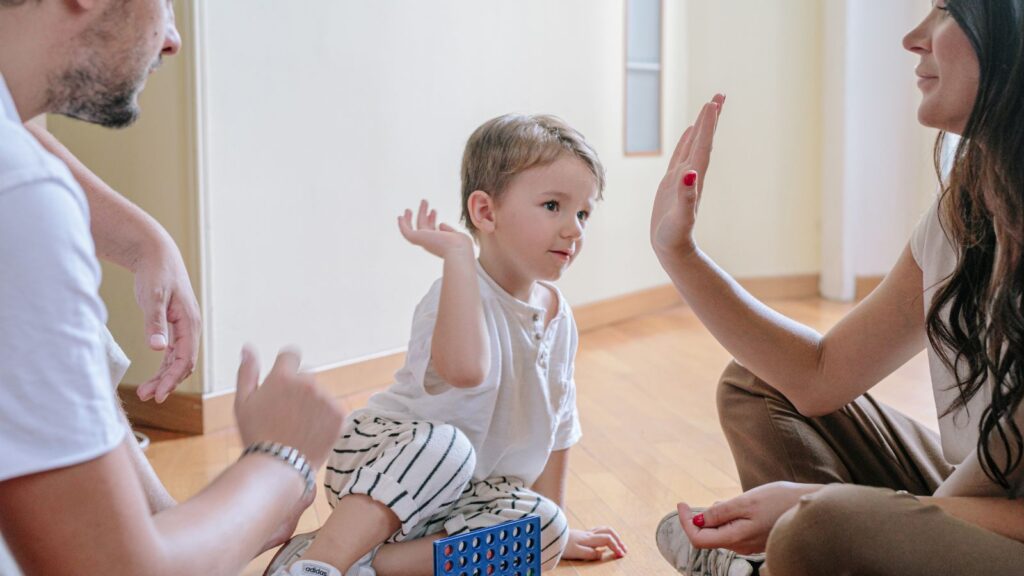In the vast landscape of parenting styles, one approach stands out for its balance of discipline and freedom: democratic parenting. It’s a style that’s gaining traction, known for fostering independence, self-esteem, and decision-making skills in children.
This method, rooted in mutual respect and cooperation, offers a compelling alternative to more traditional, authoritarian styles. It’s about giving children a voice, teaching them the value of compromise, and guiding them towards responsible behavior.
Democratic Parenting Style
Definition and Key Characteristics
Democratic parenting, a style reflective of a balanced approach, aims to harness the values of respect and cooperation amongst family members. It empowers children by providing them space for independent decision-making, fostering their self-esteem, and shaping responsible behavior. Notably, democratic parenting is not an absence of control, but it emphasizes shared control, manifesting in mutual understanding and collaboration between parents and children.

The key characteristics of a democratic parenting style are the emphasis on discussion and compromise, respect for children’s opinions, promotion of self-regulation, and positive reinforcement over punishment. It focuses on teaching, not dictating, allowing children to learn through experience while maintaining a nurturing, supportive environment.
When comparing democratic parenting with other styles, it sits comfortably between autocratic (authoritative) and permissive (lenient) parenting. Unlike the autocratic style, where parents impose rules and expect unquestioning obedience, democratic parenting encourages negotiation and conversation around rules and responsibilities. However, it doesn’t tip over into the permissive style territory, where parents have high responsiveness but low demandingness. Democratic parenting ensures that a child’s views are acknowledged, yet boundaries and rules are maintained, striking a balanced combination of discipline and freedom.
Benefits of Democratic Parenting Style
Harnessing a democratic parenting approach provides numerous benefits. These advantages pertain to personal development, communication capabilities, and emotional maturity of children. Two major benefits are as follows:
A significant benefit of democratic parenting constitutes fostering independence and responsibility in children. It inspires action from a personal standpoint. Children take the lead in making choices, laying a foundation for self-regulation. For instance, allowing a child to decide how to spend their allocated weekly screen time permits them to assert their independence whilst managing their leisure time responsibly. Resultantly, children imbibe practical decision-making capabilities. They comprehend the weight of their choices, teaching responsibility over their actions.
Enhancing Communication and Emotional Growth
Democratic parenting benefits emotional growth and communication in children too. The democratic environment encourages empathetic dialogue. Parents are not just dictators of rules, but partners in discussions. Providing a voice to the young ones, upsurges their confidence to express feelings and opinions unhesitatingly. For example, encouraging kids to share their thoughts about a family vacation destination, it not only indulges them in open conversation but also boosts their self-esteem.
Challenges of Democratic Parenting
While democratic parenting builds on the strengths of balance, autonomy, and cooperation, it presents some challenges that may complicate parenting dynamics. Handling disagreements and finding the equilibrium between freedom and guidance can be particularly daunting tasks. Yet, these challenges provide opportunities for children’s development and the cultivation of stronger parent-child relationships.
One of the main challenges in democratic parenting is managing conflicts and disagreements. Democratic parenting encourages open dialogue, allowing children to express their opinions and ideas. However, disagreements are bound to arise, and resolving them can be tricky. But it’s important to regard these disagreements as opportunities to teach negotiation skills.
For instance, a child might disagree with bedtime rules. In this situation, parents can initiate a discussion, inviting the child to share their viewpoint, and then together, they can brainstorm solutions. Such open conversations teach children to communicate effectively, respect differing viewpoints, and work towards mutual agreements.
Another difficult aspect of democratic parenting is balancing freedom with guidance. Too much freedom can lead children into avoidable mistakes, while overly cautious guidance might stifle their independence. Striking the right balance, then, becomes crucial.





